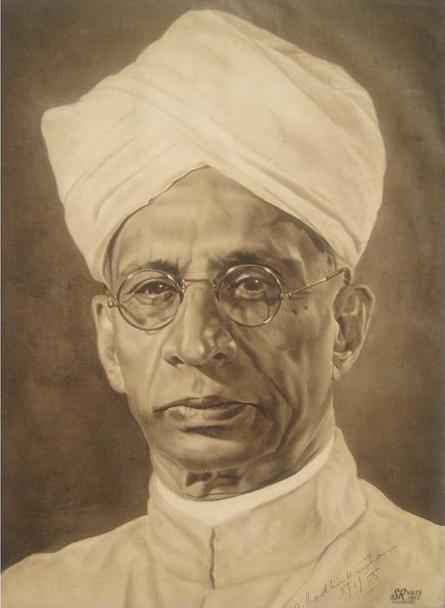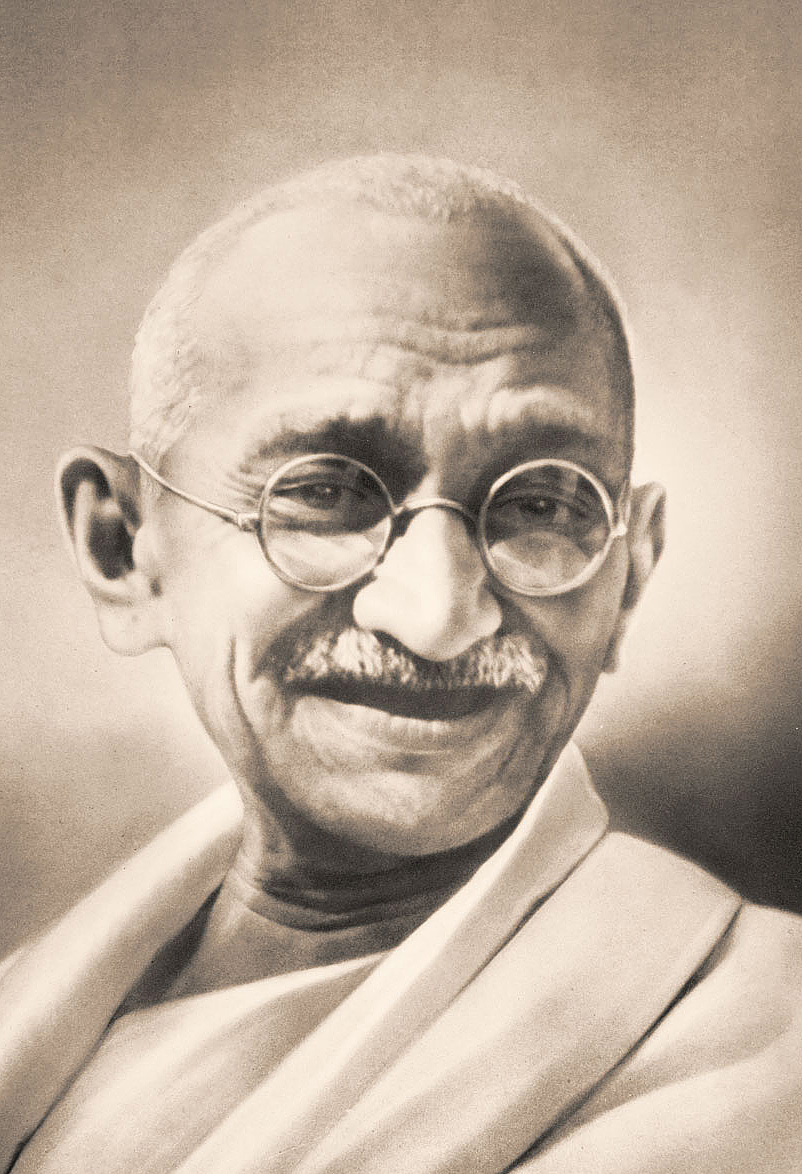
The following article was published in February 1943 in The Jaina Gazette, Vol. XXXX (No. 2), p. 21-22. As a document of contemporary history this paper is of special interest since it describes Radhakrishnan's attitude of towards Gandhi and his liberation movement. When Radhakrishnan held this lecture, Gandhi was under arrest in Pune since four months and has been released only two years later due to health reasons.
Sir Radhakrishnan on Ahimsa and Gandhiji
On December 12, 1942 at Calcutta, in his last lecture as Kamala Lecturer of the Calcutta University, Sir Radhakrishnan observed that one day the world would look back upon Gandhi and salute him as one born out of his time, as one who had seen the light in a dark and savage world.

Sarvepalli Radhakrishnan (1888 - 1975), second President of India and one of India's most influential scholars of comparative religion and philosopy.
According to the Hindu view, non-violence as a mental state was different from non-resistance. It was absence of malice and hatred. Himsa or violence was different from danda or punishment, which was the legal restraint of the guilty. Force is not the law-giver, but the servant of the law in such cases. Even ascetics are obliged to use violence; only by great effort they reduce it to a minimum. Our endeavour should be to substitute persuasion for force, and reduce the scope for the employment of force as much as possible. Man was not a beast of prey. Human behaviour was full of acquired attitudes. Man was the only animal that killed for reasons which were more or less metaphysical. Once upon a time war might have been relatively cleaner, when it was conducted according to rules. But now we have moved from flint to steel, gun-powder, poison gas, and disease germs; and we are called upon to fight with hatred for our enemy, with our heads full of scientific cunning and our hearts full with savage hatred. We throw ourselves against masses of humanity for attaining national aggrandisement. We can not say that our wars are always just. In this war all the belligerents appeal to God and look upon their case as absolutely just. Humility becomes us all. A new technique which will break the vicious circle of hate is to be devised. The League of Nations failed because it did not give up rights acquired by the use of violence; it did not involve the instrument of peaceful change, and it had not an effective sanction. It was just like a gun that fired blank cartridges. We must set up a world organisation with a world court, and an international police to support it.

Mohandas Karamchand Gandhi (1869 - 1948), usually called Mahatma Gandhi, the pre-eminent political and ideological leader of India during the Indian independence movement.
Paying a glowing tribute to Mahatma Gandhi, he said that, now and then, there arose above a common level some rare spirit who reflected more clearly the divine purpose and put into practice more courageously the divine guidance. Gandhiji's suffering embodies the wounded pride of India and in his Satyagraha is reflected the eternal patience of her wisdom. Ghandhiji admits that submission to injustice is worse than suffering it. He tells us that we can resist even through an act of non-violence which is an active force. If blood is to be shed, let it be our blood. Cultivate the quiet courage of dying without killing, for man lives freely only by his readiness to die, if need be, at the hands of his brother, never by killing him. Those few who practise this ought not merely to talk of peace and think of it, but will it with all their soul. When faced by a crisis they would prefer the four walls of a cell to a seat in the cabinet or a tent in the battlefield. They would be prepared to stand against a wall to be spit upon, to be stoned, to be shot. Gandhiji today is not a free man, but the light in him which is from the divine flame of truth and love cannot be put out.